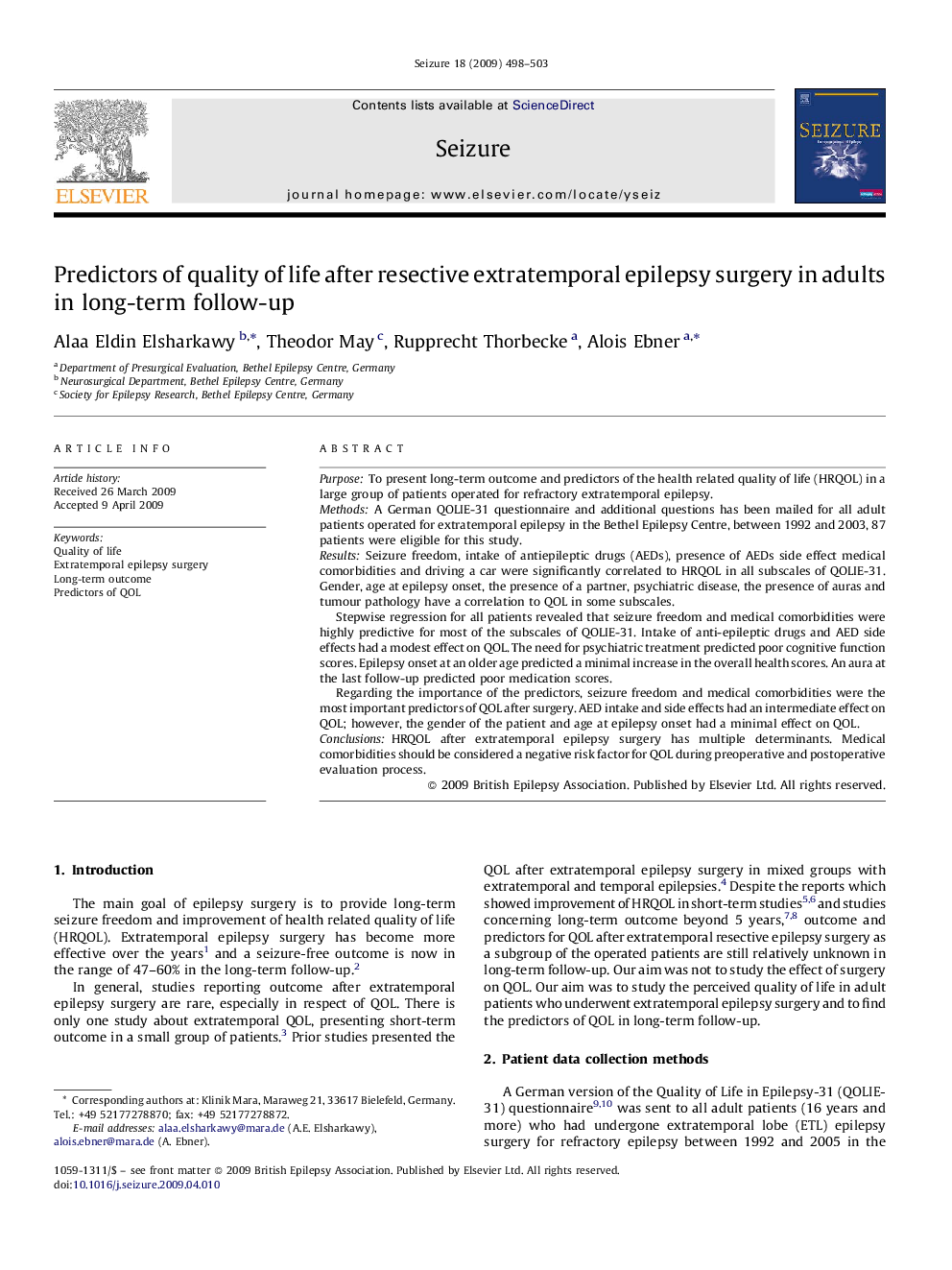| Article ID | Journal | Published Year | Pages | File Type |
|---|---|---|---|---|
| 342293 | Seizure | 2009 | 6 Pages |
PurposeTo present long-term outcome and predictors of the health related quality of life (HRQOL) in a large group of patients operated for refractory extratemporal epilepsy.MethodsA German QOLIE-31 questionnaire and additional questions has been mailed for all adult patients operated for extratemporal epilepsy in the Bethel Epilepsy Centre, between 1992 and 2003, 87 patients were eligible for this study.ResultsSeizure freedom, intake of antiepileptic drugs (AEDs), presence of AEDs side effect medical comorbidities and driving a car were significantly correlated to HRQOL in all subscales of QOLIE-31. Gender, age at epilepsy onset, the presence of a partner, psychiatric disease, the presence of auras and tumour pathology have a correlation to QOL in some subscales.Stepwise regression for all patients revealed that seizure freedom and medical comorbidities were highly predictive for most of the subscales of QOLIE-31. Intake of anti-epileptic drugs and AED side effects had a modest effect on QOL. The need for psychiatric treatment predicted poor cognitive function scores. Epilepsy onset at an older age predicted a minimal increase in the overall health scores. An aura at the last follow-up predicted poor medication scores.Regarding the importance of the predictors, seizure freedom and medical comorbidities were the most important predictors of QOL after surgery. AED intake and side effects had an intermediate effect on QOL; however, the gender of the patient and age at epilepsy onset had a minimal effect on QOL.ConclusionsHRQOL after extratemporal epilepsy surgery has multiple determinants. Medical comorbidities should be considered a negative risk factor for QOL during preoperative and postoperative evaluation process.
